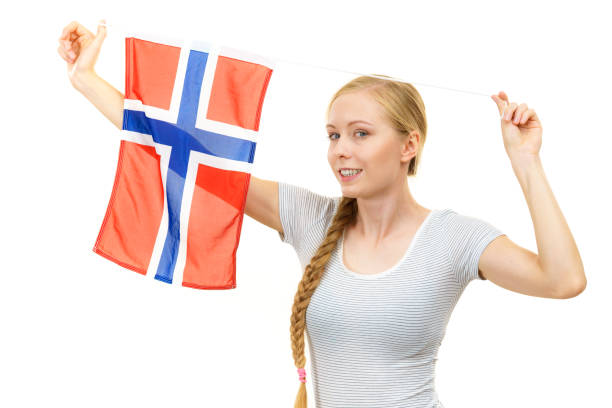Fjords, Freedom, and Futures: A Comprehensive Guide to Colleges in Norway for American Students
The majestic fjords, vibrant cities, and world-class educational institutions of Norway beckon American students seeking a stimulating and culturally enriching academic adventure. This comprehensive guide equips you, the American student, with the knowledge and strategies to navigate the Norwegian higher education landscape, maximize your chances of securing admission, and embark on a transformative academic journey in the Land of the Midnight Sun.
Advertisements
Understanding the Norwegian Education System
The Norwegian education system boasts a reputation for excellence, with innovative teaching methods, a strong emphasis on research, and a commitment to student well-being. Higher education in Norway consists of universities and university colleges, both offering Bachelor’s and Master’s degrees. The academic year typically runs from August to June, with semesters divided by short breaks.
American students considering studies in Norway will find a welcoming environment. Many programs are taught in English, especially at the Master’s level. However, some universities offer programs in Norwegian, requiring proficiency in the language. Familiarizing yourself with the educational system and language requirements is crucial before starting your college search.
Finding the Perfect College Fit
Norway offers a diverse range of universities and university colleges, each with its own specializations and strengths. Here’s how to find the perfect college fit:
-
Research Programs and Specializations: Identify your academic interests and desired field of study. Norwegian universities excel in various areas like marine science, renewable energy, environmental technology, social sciences, and business. Research the programs offered by different universities and select colleges that align with your academic aspirations.
-
Consider Location and Size: Universities are located throughout Norway, each offering a unique atmosphere. Urban universities like the University of Oslo or Bergen offer bustling city life, while smaller colleges in scenic locations like Tromsø or Ås provide a more intimate learning environment. Consider your preference for urban or rural settings and choose a college that best suits your lifestyle.
-
English Proficiency Requirements: While many programs are taught in English, some might require Norwegian language skills. Check the specific language requirements for programs you’re interested in. If a program requires Norwegian proficiency, factor in the time and resources needed to attain the required level.
-
Rankings and Reputation: Consider university rankings as a general indicator of academic quality, but don’t solely rely on them. Research the specific strengths and reputation of each college within your field of study.
-
Student Life and Support Services: Explore the student life offered by different colleges. Universities often organize social events, cultural activities, and student clubs. Additionally, consider the support services available for international students, such as academic advisors, language tutoring, and housing assistance.
Crafting a Competitive Application
Standing out amongst international applicants requires a strong and well-presented application. Here’s how to increase your chances of admission:
Advertisements
-
Standardized Test Scores (if applicable): Some programs might require standardized test scores like the SAT or ACT. Check program-specific requirements and ensure you meet the minimum score thresholds.
-
High School Transcript: A strong academic record demonstrated through your high school transcript is crucial. Highlight your GPA, relevant coursework, and any academic achievements or awards.
-
Letters of Recommendation: Obtain strong letters of recommendation from teachers, counselors, or professors who are familiar with your academic abilities and potential. These letters should showcase your strengths, motivation, and suitability for the program.
-
Statement of Purpose: The statement of purpose is your opportunity to tell your academic story. Clearly articulate your reasons for choosing Norway and the specific program, highlighting your academic interests, career goals, and how studying in Norway will contribute to your aspirations.
-
Extracurricular Activities: Demonstrate your well-roundedness by outlining your extracurricular activities, volunteer experiences, or leadership roles. These experiences showcase your skills, initiative, and potential contributions to the college community.
-
English Language Proficiency (if applicable): For programs requiring English proficiency, submit official test scores from TOEFL or IELTS to demonstrate your language abilities.
-
Standardized Test Scores for Business Programs (if applicable): Some Master’s programs in business might require standardized tests like GMAT or GRE. Ensure you meet the program-specific requirements
-
Portfolio or Work Samples (if applicable): For programs in creative fields like design or architecture, consider including a portfolio or work samples that showcase your skills and talent.
Applying and Admission Procedures
Once you shortlist colleges in Norway, carefully research their application deadlines and procedures. Application processes can vary slightly between universities, but here’s a general overview to guide you:
-
Application Deadlines: Meeting application deadlines is crucial. Norway typically operates on two admission cycles: one for fall semester intake and another for spring semester intake. Deadlines can fall anywhere between October and February, depending on the university and program. Plan well in advance to ensure you have ample time to gather all required documents and submit your application before the deadline.
-
Online Application Portal: Most universities in Norway have transitioned to online application systems. Locate the designated application portal on the university website and familiarize yourself with the specific application procedures. The portal will likely guide you through the process of uploading required documents, entering academic information, and submitting your application fees.
-
Required Documents: Applications typically require the following documents:
- A completed online application form
- Official high school transcripts translated into English (if applicable)
- Standardized test scores (SAT, ACT, GMAT, GRE) as required by the program
- Letters of recommendation from teachers, counselors, or professors
- Statement of purpose outlining your academic goals and reasons for choosing the program
- Proof of English language proficiency (TOEFL, IELTS) if the program requires it
- Portfolio or work samples (for creative fields)
- Proof of financial resources to support your studies in Norway
-
Application Fees: Some universities might charge an application fee. Be prepared to pay the fee electronically through the application portal.
-
Admission Decisions: Universities typically make admission decisions within a few weeks to a few months after the application deadline. They will communicate their decision via email, notifying you of acceptance, rejection, or waitlist status.
-
Acceptance Requirements: Upon acceptance, universities might require you to submit additional documents, such as proof of health insurance or confirmation of enrollment at a Norwegian university college. They will also provide instructions for visa applications and student housing options.
Securing Funding for Your Studies
The high cost of living in Norway can be a barrier for some American students. However, numerous funding opportunities can help you finance your studies, making the dream of studying in Norway a reality:
-
Scholarships: Several scholarships are available for American students pursuing studies in Norway. These scholarships can be merit-based, need-based, or targeted towards specific fields of study. Here’s how to explore scholarship options:
-
Norwegian Government Scholarships: The Norwegian Ministry of Education and Research offers the prestigious Quota Scheme Scholarship program for students from developing countries, including the United States (with specific focus on fields relevant to development cooperation). Research eligibility criteria and application procedures through the Ministry’s website.
-
University Scholarships: Many Norwegian universities offer scholarships specifically for international students, including Americans. These scholarships can be merit-based, need-based, or a combination of both. Explore the websites of universities you’re interested in and investigate scholarship opportunities offered by their financial aid offices or specific departments within the university.
-
US Government Programs: The US Department of Education offers various grant programs that can be used for study abroad, including the Fulbright US Student Program. Explore these programs and their eligibility requirements to determine if they align with your academic goals and chosen field of study.
-
Private Scholarships and Foundations: Numerous private foundations and organizations in both the US and Norway offer scholarships for international students. Research these organizations and their scholarship programs based on your field of study, academic achievements, and financial need.
-
-
Financial Aid from Your Home Institution: Explore financial aid opportunities offered by your current college or university in the US. Some institutions have established partnerships with Norwegian universities and might offer financial assistance for students participating in exchange programs or specific study abroad opportunities.
-
Part-Time Work Opportunities: International students in Norway are allowed to work part-time (up to 20 hours per week during semesters) with proper authorization. Explore these avenues to generate income and offset living expenses:
-
On-Campus Jobs: Universities often offer on-campus job opportunities in libraries, administrative offices, student centers, or cafeterias. These jobs can provide valuable work experience while contributing to your income.
-
Part-Time Jobs in Your Field: Look for part-time jobs relevant to your skills and field of study. This can provide practical experience while generating income. Research institutes, research centers, or companies related to your field might offer part-time positions suitable for international students.
-
-
- Freelance or Online Work (if applicable): Depending on your skills and qualifications, explore freelance or online work opportunities that allow you to work remotely while studying in Norway. This could involve freelance writing, editing, graphic design, virtual tutoring, or online content creation (if your visa permits). Be mindful of visa restrictions and ensure your chosen online work aligns with the authorized activities for international students in Norway.
Living Frugally and Managing Costs
While securing scholarships and exploring various funding options is crucial, understanding the cost of living in Norway and practicing smart budgeting can significantly impact your financial situation. Here are some tips for living frugally and managing costs effectively:
-
Accommodation: Housing can be a significant expense in Norway. Explore affordable housing options such as student dormitories, shared apartments, or renting a room in a private home. Consider living outside city centers where housing costs might be slightly lower. Utilize online resources or student housing websites to find suitable and affordable accommodation. Apply early as student housing can be competitive, especially in major cities.
-
Food and Groceries: Eating out frequently can be expensive. Explore grocery stores offering budget-friendly options and prepare meals at home. Consider joining student organizations that might organize group grocery shopping trips or bulk-buying opportunities. Take advantage of student discounts offered by some grocery stores or restaurants. Look for student cafeterias on campus that provide affordable meal options. Pack lunches for your studies or outings to avoid frequent restaurant meals.
-
Transportation: Utilize public transportation (buses, trams, or subways) for commuting. Explore student discounts on public transportation passes. Consider cycling or walking for shorter distances when the weather permits. Taking advantage of Norway’s well-developed cycling infrastructure can be a healthy and cost-effective way to get around.
-
Textbooks and Course Materials: Textbooks and academic resources can be expensive in Norway. Explore online resources, libraries, or used book stores to acquire course materials at a lower cost. Borrow textbooks from classmates or seniors whenever possible. Consider e-textbooks or online learning resources to reduce the need for physical textbooks.
-
Entertainment and Leisure: Norway offers breathtaking natural landscapes and free outdoor activities like hiking, exploring fjords, or visiting national parks. Utilize these free leisure options to explore the beauty of Norway. Consider student discounts for museums, cultural events, or movie tickets. Many universities and student organizations also organize affordable social events and activities for international students.
-
Budgeting and Tracking Expenses: Create a budget plan that outlines your estimated income (scholarships, part-time work) and anticipated expenses (accommodation, food, transportation, etc.). Track your expenses meticulously to identify areas where you can cut back and optimize your budget. Utilize budgeting apps or spreadsheets to manage your finances effectively.
The Visa Process for American Students in Norway
To study in Norway for more than 90 days, American students will need to obtain a student visa. Here’s a breakdown of the visa process:
Understanding Visa Types:
- Student Visa (Type D): This visa is required for American students pursuing programs exceeding 90 days in Norway. It allows you to reside in Norway for the duration of your studies and might permit part-time work opportunities (up to 20 hours per week during semesters).
Required Documents:
-
Valid US Passport: Ensure your passport has at least six months of validity beyond your intended stay in Norway and sufficient blank pages for visa stamps.
-
Letter of Acceptance: An official acceptance letter from a recognized university in Norway confirming your enrollment in a full-time study program is crucial.
-
Proof of Financial Resources: You’ll need to demonstrate sufficient financial resources to support yourself during your studies in Norway. This could include documentation of scholarships, bank statements, or a sponsor’s letter of financial support. The required amount varies depending on your location and living expenses, but it’s typically around NOK 126,396 (approximately €14,000) per year.
-
Documentation of Health Insurance: Proof of valid health insurance coverage for the entire duration of your studies in Norway is mandatory. This insurance should cover medical expenses, hospitalization, and emergency repatriation. Explore student health insurance options available through US providers or consider private health insurance plans specifically designed for international students in Norway.
-
Passport Photos: Several recent passport-sized photos adhering to the specifications outlined by the Norwegian Directorate of Immigration (UDI) will be required.
-
Police Clearance Certificate (if applicable): In some cases, the UDI might request a police clearance certificate from your home state in the US.
Application Process:
-
Submit Online Application: Submit your student visa application electronically through the UDI website. There might be an application fee associated with the process.
-
Biometric Enrollment: American students might be required to provide fingerprints and a photograph at a designated VFS Global center in the US. This step depends on individual circumstances and will be communicated during the application process.
-
Processing Time: Processing times for student visas can vary, so it’s crucial to apply well in advance of your intended study start date. Allow several months for processing, especially during peak application seasons.
-
Visa Decision: The UDI will communicate the decision regarding your student visa application via email. If approved, the visa will be linked to your passport.
-
Arrival in Norway: Once you arrive in Norway, you might need to register with the local police station to confirm your residence and activate your student visa.
Additional Considerations:
-
Validity of Your Visa: Ensure your student visa covers the entire duration of your studies in Norway. If your program extends beyond the initial visa validity period, you’ll need to apply for an extension well before your visa expires.
-
Part-Time Work Authorization: A student visa typically allows part-time work (up to 20 hours per week during semesters). Explore on-campus job opportunities, part-time jobs related to your field of study, or freelance/online work options (if your visa permits) to generate income and gain valuable experience. However, always adhere to the work limitations outlined in your visa to avoid any complications.
Beyond Budgeting: Embracing the Norwegian Lifestyle
Living in Norway is not just about managing finances; it’s about embracing the unique culture and lifestyle the country offers. Here are some ways to enrich your experience beyond budgeting:
- Learning Norwegian: While English proficiency is sufficient for many programs, basic conversational Norwegian goes a long way. Enrolling in language courses before or during your studies allows you to connect with the local community on a deeper level. Many universities offer Norwegian language courses specifically designed for international students. Additionally, online language learning platforms like Duolingo or Memrise can be valuable resources for acquiring basic Norwegian language skills.
- Socializing and Integration: Step outside your comfort zone and connect with Norwegian students and local residents. Participate in university-organized events, join student clubs or organizations that align with your interests, or volunteer in your local community. This not only fosters cultural exchange but also builds a strong social network in your new home away from home.
- Outdoor Activities: Norway is a paradise for outdoor enthusiasts. Hike breathtaking trails, explore majestic fjords by kayak, or go skiing in the winter. Embrace the active Norwegian lifestyle and appreciate the stunning natural beauty of the country. Consider joining outdoor adventure clubs or student organizations that organize hiking trips, camping excursions, or kayaking expeditions.
- Work-Life Balance: Norwegians prioritize a healthy work-life balance. Utilize your free time to explore the country, travel to neighboring European destinations, or simply relax and rejuvenate. Disconnect from technology and embrace the concept of “friluftsliv” (Norwegian for “open-air living”) by spending time outdoors and appreciating the natural world.
- Sustainable Living: Norway is a leader in sustainability practices. Embrace this eco-friendly approach by adopting sustainable habits in your daily life. Utilize public transportation or cycling for commutes, reduce waste by recycling and composting, and support local businesses that prioritize sustainable practices. Living sustainably not only benefits the environment but also aligns with the Norwegian way of life.
Advertisements






